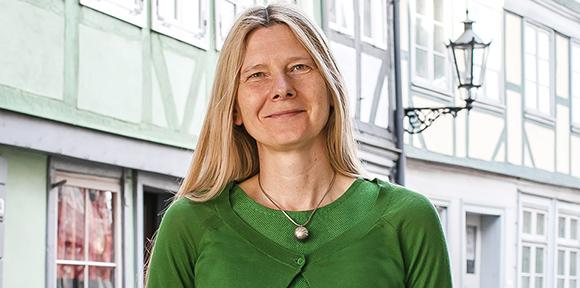
The story of an elderly German widow who was accused by her neighbours of being a witch has won a top history prize.
Professor Ulinka Rublack, Early Modern European History specialist and a Fellow of St John’s College, wrote The Astronomer and the Witch: Johannes Kepler's Defence of his Mother about Katharina Kepler who was caught up in the witch hunts which swept across Europe in the 16th and 17th centuries. Around 50,000 women were killed for being ‘witches’ – a historical period Rublack describes as "the most epic of tragedies".
Kepler, a herbalist, was first accused aged 68 in 1615 in her home town of Leonberg after a neighbour said she had been given a potion by Kepler after an argument which made her sick. She was also accused of killing local animals and turning herself into a cat. Her case lasted for six years and for the last 14 months she was imprisoned and chained to the floor of a cell. Johannes Kepler, her famous astronomer son whose high profile research provided the basis for Sir Isaac Newton’s gravitation theory, abandoned his work to defend her himself.
Rublack’s book about the pair has now scooped the Preis des Historischen Kollegs - also known as the German Historikerpreis - given in recognition of a significant work which “opens up new research territory”. The prize is also a prestigious acknowledgement of her research career.
The German Historikerpreis prize was first awarded in 1983, the winner is chosen by members of the Historical College in Munich and receives €30,000. Professor Rublack will be presented with the prize at an award ceremony at the Bavarian Academy of Sciences in Munich in November.
